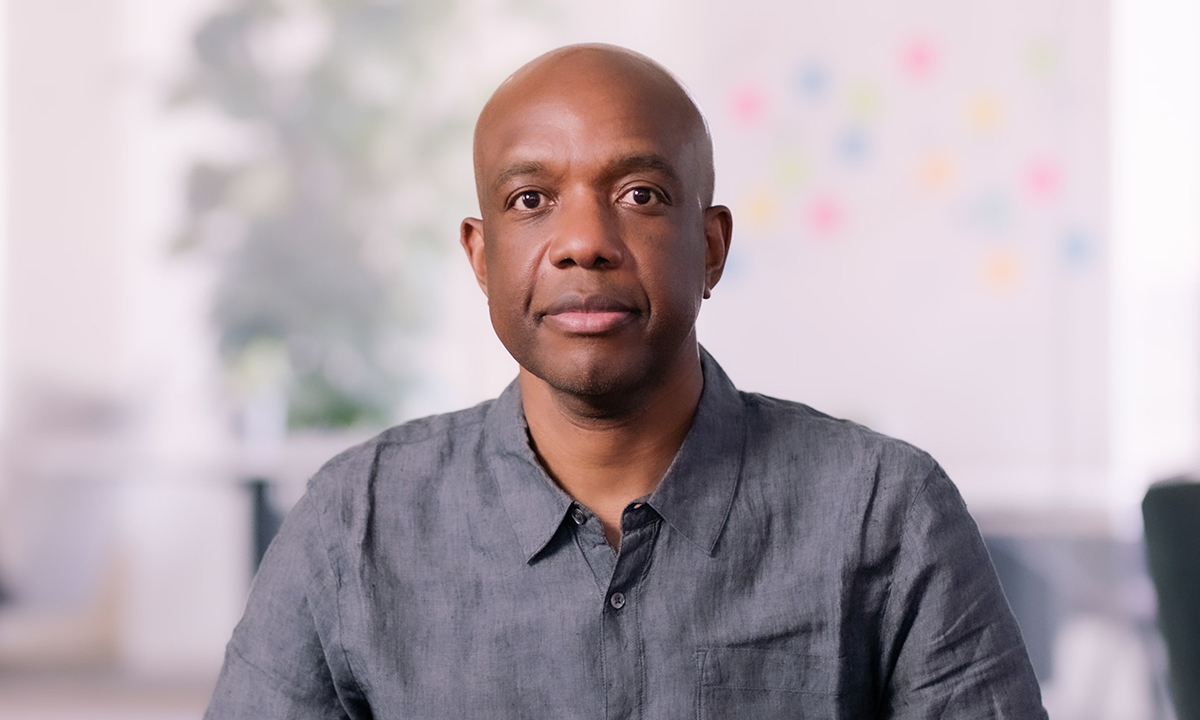|
谷歌高管:人工智能对人类社会到底有何影响?2024年将指明方向 James Manyika 2024-01-19
人工智能不仅可以帮助人类完成日常任务,DG游戏还能够完成最雄心勃勃也最富有想象力的工作,实现创新和繁荣,造福各地人民。
谷歌研究、技术和社会高级副总裁詹姆斯·马尼卡。图片来源:COURTESY OF JAMES MANYIKA 2023年,人工智能经历十年开发和应用终于获得重大进展,突然之间进入公众视野。人工智能拓展了对可能性的感知,挑战了多任务处理的能力,也在公众和私人领域引发争论。如果说2023年是全世界体验人工智能的一年,2024年则将为未来几十年人工智能对社会的影响指明方向。 因此未来一年成为紧迫的机会。如果全世界处理得当,人工智能不仅可以帮助人类完成日常任务,还能够完成最雄心勃勃也最富有想象力的工作,欧博注册实现创新和繁荣,造福各地人民。要实现这一点,就必须积极主动共同努力,充分发挥人工智能的益处,应对挑战和风险,加以管理的同时也要建立信任。 据估计,全球人工智能潜在经济价值介于17万亿美元至25万亿美元。其中部分经济效益将来自各种规模的企业家和企业利用人工智能创新、创造和提高生产力。毫无疑问,人工智能的科学应用和发现也会有所助益。2023年,科学界一些实例包括能够识别基因突变良性还是恶性的人工智能模型,以及可以推动基因检测和治疗更包容也更公平的突破。从材料科学到能源等领域,欧博代理还有诸多其他案例。 不管是协助诊断,改善健康,还是缓解和适应气候变化,人工智能也为紧迫的社会挑战提供了新方法。举个例子,目前人工智能洪水预报已经向80多个国家和4.72亿人提供洪水警报。 公众并未视而不见。即将公布的谷歌(Google)与益普索(Ipsos)在17个国家进行的民意调查显示,受访者预计人工智能会扰乱工作和生活,但总体上认为结果积极。在全球发展中国家持此类态度的人数更多,不过这些国家的人们也更期望国家参与人工智能开发应用并通过转型受益。 与此同时,人工智能也伴随着复杂性和风险,必须认真对待。其中真实性、偏见和有毒内容等性能。即便人工智能达到预期,欧博官网也可能出现不合适的应用方式或被不良企图者滥用。2024年特别适合观察虚假信息问题,因为预计60多个国家将有25亿人参加投票。 正如全世界应对技术突破的方式,现在我们要从人工智能如何拉动劳动力市场和就业机会入手,处理社会的复杂形势。如果应对得当,人工智能就可以帮助人类,推动经济和扩大共同繁荣。但我们要认真考虑解决包容和教授新技能的问题,重点关注人工智能如何成为人类能力的补充而不是简单取代。由于人工智能开发、部署和应用将分布在各个国家和地区,相关挑战无法也不应该由单一实体解决。人工智能治理必须具有包容性,且以公共利益为中心。 2023年,美国、欧盟(EU)、七国集团(G7)和联合国人工智能高级别咨询机构(UN High-Level Advisory Body on AI)等均在努力解决其中一些问题,欧博娱乐包括治理和监管等等。2024年,我们必须在令人鼓舞的进展基础上,推动发展中国家在内广泛而有代表性的利益相关方群体积极参与,争取造福人民、保护基本人权且符合国际法。目前,联合国80%以上的可持续发展目标均已偏离轨道,对人们的生活、繁荣和地球的健康造成巨大的影响,人工智能有望协助取得更多的进展。 如果全社会希望充分实现人工智能在社会和经济方面的潜力,那么2024年就必须是跨部门、跨学科和跨地理边界的行动之年。前方任重道远。(财富中文网) 詹姆斯·马尼卡(James Manyika)是谷歌(Google)研究、技术和社会高级副总裁。 Fortune.com上发表的评论文章中表达的观点,仅代表作者本人的观点,不代表《财富》杂志的观点和立场。 译者:梁宇 审校:夏林
2023年,人工智能经历十年开发和应用终于获得重大进展,突然之间进入公众视野。人工智能拓展了对可能性的感知,挑战了多任务处理的能力,也在公众和私人领域引发争论。如果说2023年是全世界体验人工智能的一年,2024年则将为未来几十年人工智能对社会的影响指明方向。 因此未来一年成为紧迫的机会。如果全世界处理得当,人工智能不仅可以帮助人类完成日常任务,还能够完成最雄心勃勃也最富有想象力的工作,实现创新和繁荣,造福各地人民。要实现这一点,就必须积极主动共同努力,充分发挥人工智能的益处,应对挑战和风险,加以管理的同时也要建立信任。 据估计,全球人工智能潜在经济价值介于17万亿美元至25万亿美元。其中部分经济效益将来自各种规模的企业家和企业利用人工智能创新、创造和提高生产力。毫无疑问,人工智能的科学应用和发现也会有所助益。2023年,科学界一些实例包括能够识别基因突变良性还是恶性的人工智能模型,以及可以推动基因检测和治疗更包容也更公平的突破。从材料科学到能源等领域,还有诸多其他案例。 不管是协助诊断,改善健康,还是缓解和适应气候变化,人工智能也为紧迫的社会挑战提供了新方法。举个例子,目前人工智能洪水预报已经向80多个国家和4.72亿人提供洪水警报。 公众并未视而不见。即将公布的谷歌(Google)与益普索(Ipsos)在17个国家进行的民意调查显示,受访者预计人工智能会扰乱工作和生活,但总体上认为结果积极。在全球发展中国家持此类态度的人数更多,不过这些国家的人们也更期望国家参与人工智能开发应用并通过转型受益。 与此同时,人工智能也伴随着复杂性和风险,必须认真对待。其中真实性、偏见和有毒内容等性能。即便人工智能达到预期,也可能出现不合适的应用方式或被不良企图者滥用。2024年特别适合观察虚假信息问题,因为预计60多个国家将有25亿人参加投票。 正如全世界应对技术突破的方式,现在我们要从人工智能如何拉动劳动力市场和就业机会入手,处理社会的复杂形势。如果应对得当,人工智能就可以帮助人类,推动经济和扩大共同繁荣。但我们要认真考虑解决包容和教授新技能的问题,重点关注人工智能如何成为人类能力的补充而不是简单取代。由于人工智能开发、部署和应用将分布在各个国家和地区,相关挑战无法也不应该由单一实体解决。人工智能治理必须具有包容性,且以公共利益为中心。 2023年,美国、欧盟(EU)、七国集团(G7)和联合国人工智能高级别咨询机构(UN High-Level Advisory Body on AI)等均在努力解决其中一些问题,包括治理和监管等等。2024年,我们必须在令人鼓舞的进展基础上,推动发展中国家在内广泛而有代表性的利益相关方群体积极参与,争取造福人民、保护基本人权且符合国际法。目前,联合国80%以上的可持续发展目标均已偏离轨道,对人们的生活、繁荣和地球的健康造成巨大的影响,人工智能有望协助取得更多的进展。 如果全社会希望充分实现人工智能在社会和经济方面的潜力,那么2024年就必须是跨部门、跨学科和跨地理边界的行动之年。前方任重道远。(财富中文网) 詹姆斯·马尼卡(James Manyika)是谷歌(Google)研究、技术和社会高级副总裁。 Fortune.com上发表的评论文章中表达的观点,仅代表作者本人的观点,不代表《财富》杂志的观点和立场。 译者:梁宇 审校:夏林
In 2023, after a decade of significant progress in its development and use, artificial intelligence (AI) burst into the public consciousness, expanding our sense of possibility, challenging how we approach many tasks, and sparking public and private debate. If 2023 was the year the world came to experience AI, 2024 is the year that will chart the course for how it impacts society for decades to come. This makes the coming year a moment of urgent opportunity. If the world gets this right, AI will assist us in everyday tasks as well as our most ambitious and imaginative endeavors, enable innovation and prosperity, and benefit people everywhere. To do that, we must work proactively and collectively toward realizing AI’s benefits, addressing its challenges and risks, and governing it in ways that build trust. AI’s potential economic value has been estimated to be from $17 to $25 trillion globally. Some of this economic benefit will be a result of entrepreneurs and businesses of all sizes leveraging AI to innovate, create, and be more productive. It will also undoubtedly come from the scientific applications and discoveries AI makes possible. Some illustrative examples in science from the past year include AI models able to categorize genetic mutations as benign or harmful, and breakthroughs that will lead to more inclusive and equitable genetics testing and treatment. There are numerous other examples in fields ranging from material science to energy. AI also offers new ways to address pressing societal challenges–whether it’s helping us diagnose and improve health outcomes or mitigate and adapt to climate change. For example, AI-enabled flood forecasting is now providing flood alerts to more than 80 countries and 472 million people. This is not going unnoticed by the general public. The results of forthcoming public opinion research Google conducted with Ipsos, spanning 17 countries, show that while respondents expect AI to disrupt work and life, they also believe that this disruption would overall be positive. These attitudes are most pronounced in countries in the Global South–but come with heightened expectations that those countries will be involved in AI’s development and use and benefit from its transformational potential. At the same time, AI also presents complexities and risks that must be taken seriously. Some of these include performance issues like factuality, bias, and toxicity. Even when AI works as intended, it can be applied in inappropriate ways or misused by bad actors. Misinformation is a particularly timely concern for 2024, as an estimated 2.5 billion people in more than 60 countries are expected to go to the polls. As the world has done with previous technological breakthroughs, we need to navigate societal complexities around how AI will cause the labor market and jobs to evolve. If we get it right, AI offers an avenue for assisting people, powering our economies, and expanding shared prosperity. But we will need to thoughtfully address questions around inclusion and reskilling, with a focus on how AI can complement rather than replace human capacity. None of these challenges can or should be addressed by a single entity, given that the development, deployment, and use of AI will happen across countries and regions. Governance for AI must be inclusive–and focused on the public interest. Last year brought a number of national and international efforts to address some of these questions, including governance and regulation: the U.S., the E.U., the G7, and the UN High-Level Advisory Body on AI, an effort I am co-chairing. In 2024, we must build on this encouraging progress in ways that benefit people, protect fundamental human rights, and international law, and engage a broad and representative group of stakeholders including those in the Global South. The world is currently off track on more than 80% of the United Nations’ Sustainable Development Goals with huge implications for people’s lives, prosperity, and the health of our planet–and AI may help us make more progress. If we as a society are to set ourselves on the road to fully realizing the societal and economic potential of AI, then 2024 must be a year of action across sectors, disciplines, and geographic borders. We have much to accomplish. James Manyika is Google’s SVP of research, technology, and society. The opinions expressed in Fortune.com commentary pieces are solely the views of their authors and do not necessarily reflect the opinions and beliefs of Fortune. (责任编辑:) |

